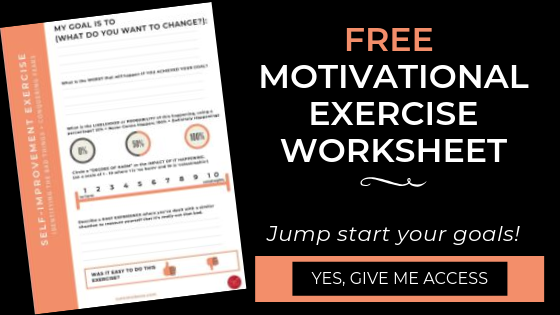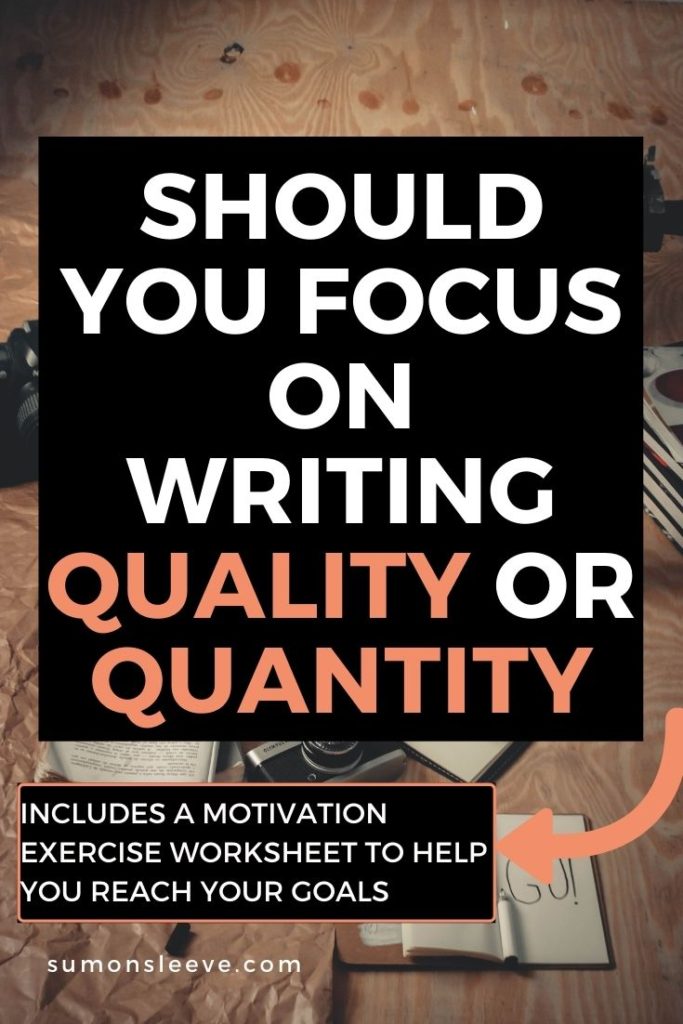Should a writer focus on writing high-quality articles or writing a ton? Does quality or quantity matter more? The question is fundamentally flawed.

A writer’s dilemma
The quality versus quantity debate is what tears a writer apart. You want to write a ton but you’re afraid the more you write and faster you get, the quality of your writing declines.
So what should you focus on?
Quantity
Spend time hitting publish a dozen times an hour. Because if you put everything and anything out there, at some point, something will stick. Just keep pumping out mediocrity and don’t look back. The volume will draw the masses and eventually someone important will notice. They’ll see your name so many times that it’s impossible for them to forget who you are…
Not really…
You’ve heard the saying “Practice makes perfect” as if you aim to write as much as you can, you will eventually get results; however, this isn’t true if you’re doing the same thing, over and over again without actually getting better.
It’s like throwing a basketball with the same arm angle, feet placement, hand position, a thousand times and missing every shot.
You might get faster and you might produce more but do you reach perfection? No, it becomes practice makes more practice. And writing for the sake of writing leads to a dull and forgettable performance.
So should you put effort into quality then?
Quality
Spend weeks or even months drafting, editing, re-working, formatting, wordsmithing the crap out of a single article. Because only a perfect story gets rave reviews, draws tons of traffic, earns you all the monies, followers, reads, claps, likes, shares, attracts the attention of highly coveted publications, lands you that million-dollar book deal…
Not true either; it’s not about spending all your time trying to write the best article, excessively pondering the perfect words to use, constantly questioning whether the sentence is succinct enough, and overthinking and overanalyzing every paragraph.
If you’re seeking perfection, you’ve put yourself in a wild goose chase.
So what should you focus on?
The question is fundamentally flawed
It doesn’t make sense to prioritize one over another because successful writers depend on both. You can’t have quality writing without quantity. And focusing solely on quantity doesn’t improve quality.
How do you actually improve the quality of your writing?
Step 1. Get feedback
Write to a point where it’s “good enough”; then, ask for honest and reliable feedback. This could be from readers, editors, online communities, a coach, a friend, a family member, basically anyone who is willing to tell you what you need to work on.
Yes, it can be scary to put your work out there and ask for criticism. I was afraid too. I thought I might get embarrassed; people might think I’m a joke.
It’s much easier to sit in your room, write and type until the cows come home, collecting drafts upon drafts without ever hitting publish, safely tucked inside your mind where no one can point out what you’re doing wrong.
However, you won’t know you have quality writing unless someone besides yourself says you do.
Step 2. Incorporate the right feedback
Next, you need to incorporate the right feedback into your writing. I emphasize the right feedback because there is a huge difference between a troll who is deliberately gaslighting you, your mom who says everything you write is amazing and someone who is actually offering constructive feedback.
Throughout my career, from writing academic essays, scientific papers, business project charters to blog posts, I’ve held onto every piece of valuable feedback I’ve ever received. When I get the right feedback that uncovers what I couldn’t see for myself, I incorporate it into the next sentence I write.
Some of the feedback I’ve received:
“Your headline is kinda boring and long winded.”
“The story lacks cohesion. You need to tie it together from beginning to the end.”
“It’s a little too meta and confusing to offer value to a reader. It seems like you’re ranting and rambling without purpose.”
“Know the difference between active and passive voice and use the right one to convey your message appropriately.”
“You’re using words ‘like’, ‘that’ and ‘just’ too much.”
So I did my due diligence and read up on how to write better headlines (I’m assuming this one caught your eye.)
During my editing process, I’ll ask myself questions:
“Does the story flow from beginning to the end?
“Would a passive voice work better to emphasize the action and create objectivity?”
“Would an active voice work better to emphasize the person and sound more conversational?”
“What is the takeaway for a reader? Are my points clearly laid out to illustrate this?
“How does my article offer value to a reader? Does it entertain, inform, and/or inspire?”
And lastly, I’ll do a Ctrl F for the words “like”, “that” and “just”.
Take all feedback with a grain of salt. Feedback should lift you to the next level, challenge you, enhance your writing ability, distilling down to your individual talent and skill, but not completely change who you are.
Step 3. Repeat steps 1 and 2
Quality is subjective and you need a high quantity of samples to gauge that subjectivity. In order to improve your writing, you need to complete this cycle, again and again, asking for feedback, incorporating it, then seeking feedback and adjusting it again…
It’s an infinite cycle of continuous improvement where every cycle gets a little more refined as you attain mastery.
Good writers only become good when they’ve put themselves out there time and time again, getting evaluated and adjusting their performance to do better.
The next time you’re worried about the quality of your article, press publish anyway and see what people think. And if you’ve been a little finger happy with that button, take a moment to see if people are still reading.





